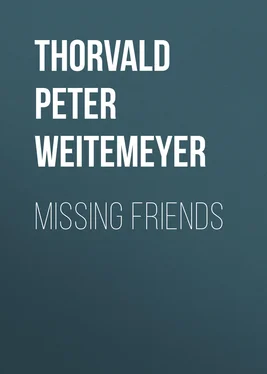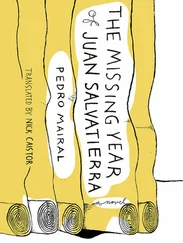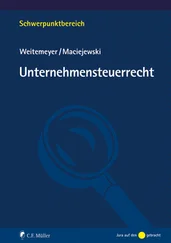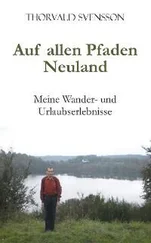Thorvald Peter Ludwig Weitemeyer - Missing Friends
Здесь есть возможность читать онлайн «Thorvald Peter Ludwig Weitemeyer - Missing Friends» — ознакомительный отрывок электронной книги совершенно бесплатно, а после прочтения отрывка купить полную версию. В некоторых случаях можно слушать аудио, скачать через торрент в формате fb2 и присутствует краткое содержание. Жанр: Путешествия и география, foreign_antique, foreign_prose, на английском языке. Описание произведения, (предисловие) а так же отзывы посетителей доступны на портале библиотеки ЛибКат.
- Название:Missing Friends
- Автор:
- Жанр:
- Год:неизвестен
- ISBN:нет данных
- Рейтинг книги:3 / 5. Голосов: 1
-
Избранное:Добавить в избранное
- Отзывы:
-
Ваша оценка:
- 60
- 1
- 2
- 3
- 4
- 5
Missing Friends: краткое содержание, описание и аннотация
Предлагаем к чтению аннотацию, описание, краткое содержание или предисловие (зависит от того, что написал сам автор книги «Missing Friends»). Если вы не нашли необходимую информацию о книге — напишите в комментариях, мы постараемся отыскать её.
Missing Friends — читать онлайн ознакомительный отрывок
Ниже представлен текст книги, разбитый по страницам. Система сохранения места последней прочитанной страницы, позволяет с удобством читать онлайн бесплатно книгу «Missing Friends», без необходимости каждый раз заново искать на чём Вы остановились. Поставьте закладку, и сможете в любой момент перейти на страницу, на которой закончили чтение.
Интервал:
Закладка:
This work in Hamburg certainly did not suit my ideas of liberty. My head would swim of an evening when I came out of the shop. As already stated, I had rented a small room from one of the men for a mere trifle, and I boarded myself, and very frugal fare I had. This self-denial was because I soon made up my mind that I would not stay in Hamburg; and so I saved all that was possible, and it did not take long before I could commence to count a few thalers in my pocket.
On Sunday evenings I used to go and sit in one of the public gardens, and listen to the music and watch the faces of the people there. Sometimes when there was a free show I would be there too, but I never spent any money. With the din of the shop scarcely out of my ears, and Monday morning looming only a few hours away, I almost fancied myself of a different species from such happy, chattering crowds as would pass and repass seemingly without a care in the world. There was not a soul to speak to me. For one thing, I could scarcely make myself understood in German; for another, the men in the shop, who were the only people I knew, if I did go down the street with one of them, conversation had but one subject for which was sure somehow to turn on the quality of the glue we used. They all had a vast reverence for the furniture dealers, and they were just the people I did not like. I was therefore quite alone. I was also wonderfully homesick. Often and often did I wish that I had never run away, but it seemed to me impossible to go home again, and so I used to sit and speculate on what I had better do. I thought when I had saved a little money I would go to Paris, or Vienna. They were nice places I believed; but of one thing I was certain, and that was that as yet I had not seen anybody I liked as well as myself, or any place I liked so well as my own home!
One Sunday evening as I walked about the streets, I saw in a window a large attractive placard on which was printed in red letters, "Free Emigration to Queensland, Australia." I am certain I had never heard the name of Queensland before, and my impression of Australia was that it was the place to which criminals were sent; I had also read something about gold-diggings in Australia, but it was in the form of a novel, and I did not believe it. I called to mind what I had read in school in the geography about Australia, and I remembered it well. It was only a short paragraph. It ran thus: "Australia. Travellers who come from this distant continent, bring us very conflicting statements. It seems to be a land in which nature is reversed. The leaves are hanging downwards on the trees instead of upwards. Rivers run from the ocean inland. The interior seems to be one vast lake of salt water. It is the home of the kangaroo and the black swan. Altogether but little is known about it. Captain Cook discovered it in the year 1788. It belongs to England. The Dutch have possessions in the North. It has been used as a penal settlement by England, but this is now abolished. Of late years gold has been found in considerable quantities and in several places. Wool, tallow, and hides are exported. Towns, Sydney and Melbourne."
I can scarcely help laughing to myself now when recalling to mind this piece of information about Australia. It was really an ignorant and disgraceful morsel of information for one of the best schools in Copenhagen to offer to its pupils, but it was all the knowledge I had or could get, and it was not much assuredly to give one any idea what Queensland was like. But somehow I determined to find out what I could for myself. There was gold there that might be more easily got, perhaps, than by making chests of drawers, so the next day I presented myself at the office, and asked for information.
Yes, it was right. The ship would sail in a fortnight. "Did I want to go? Two pounds sterling please. Only three or four tickets left." "Well—I would like a little information." "Information, yes, we have every information. What is it you want to know? You get, to begin with, all your food, and splendid food I can tell you is provided for you on the whole journey. You also get bed-clothes, and your own knife, spoon, and fork. This will all become your own property on arrival in Queensland. Here is the bill of fare."
Читать дальшеИнтервал:
Закладка:
Похожие книги на «Missing Friends»
Представляем Вашему вниманию похожие книги на «Missing Friends» списком для выбора. Мы отобрали схожую по названию и смыслу литературу в надежде предоставить читателям больше вариантов отыскать новые, интересные, ещё непрочитанные произведения.
Обсуждение, отзывы о книге «Missing Friends» и просто собственные мнения читателей. Оставьте ваши комментарии, напишите, что Вы думаете о произведении, его смысле или главных героях. Укажите что конкретно понравилось, а что нет, и почему Вы так считаете.












